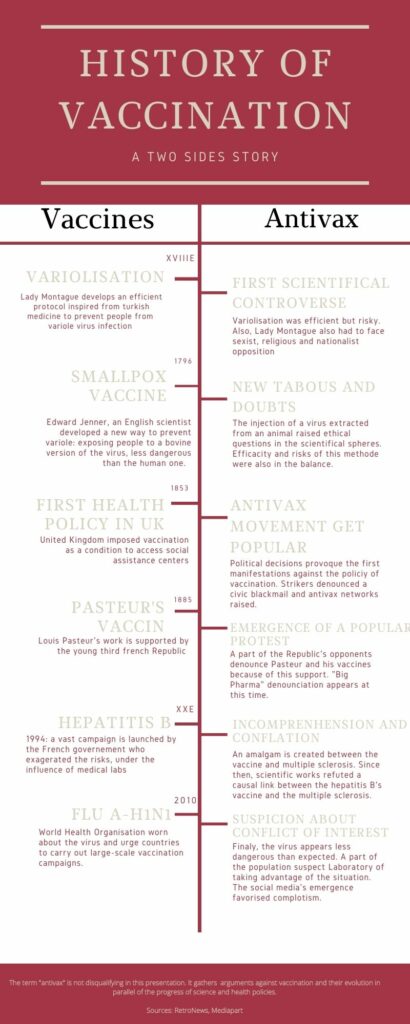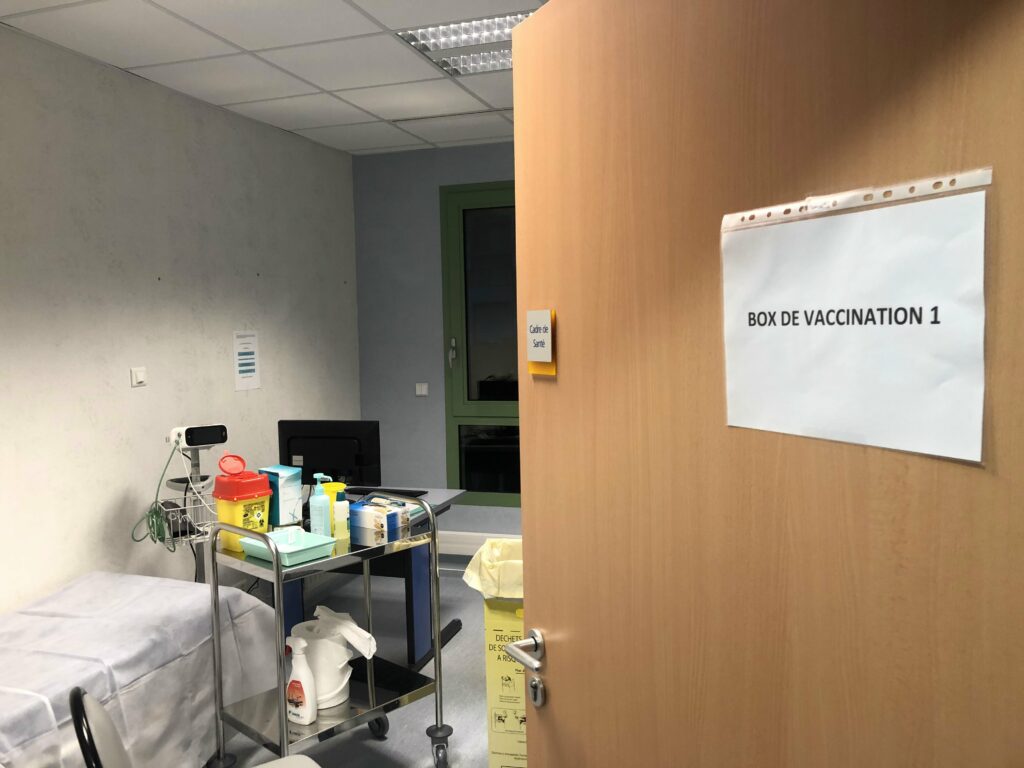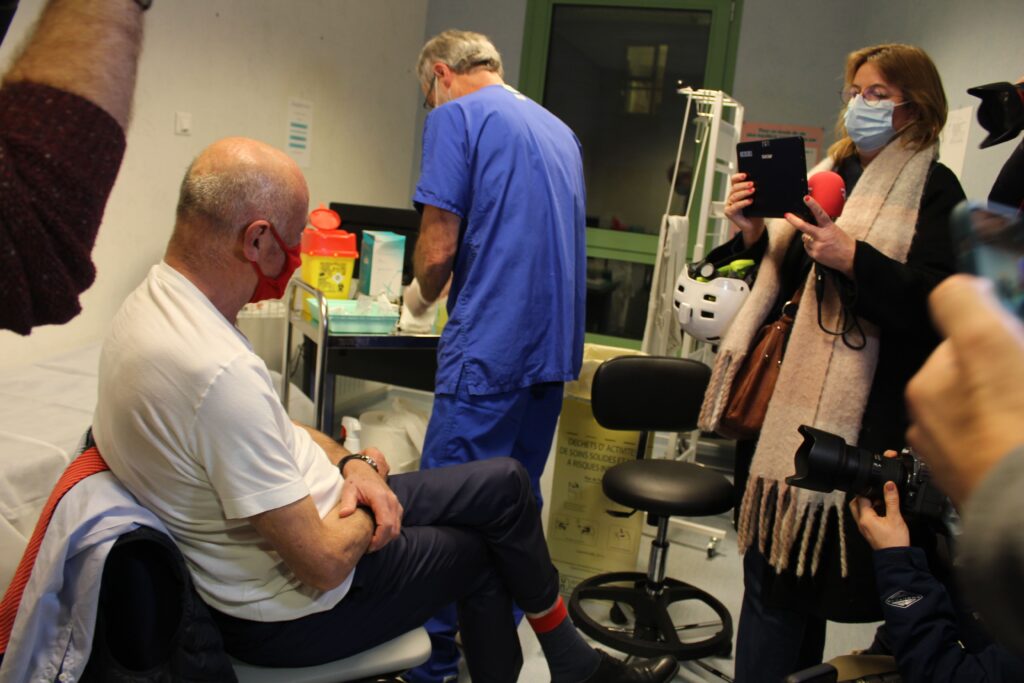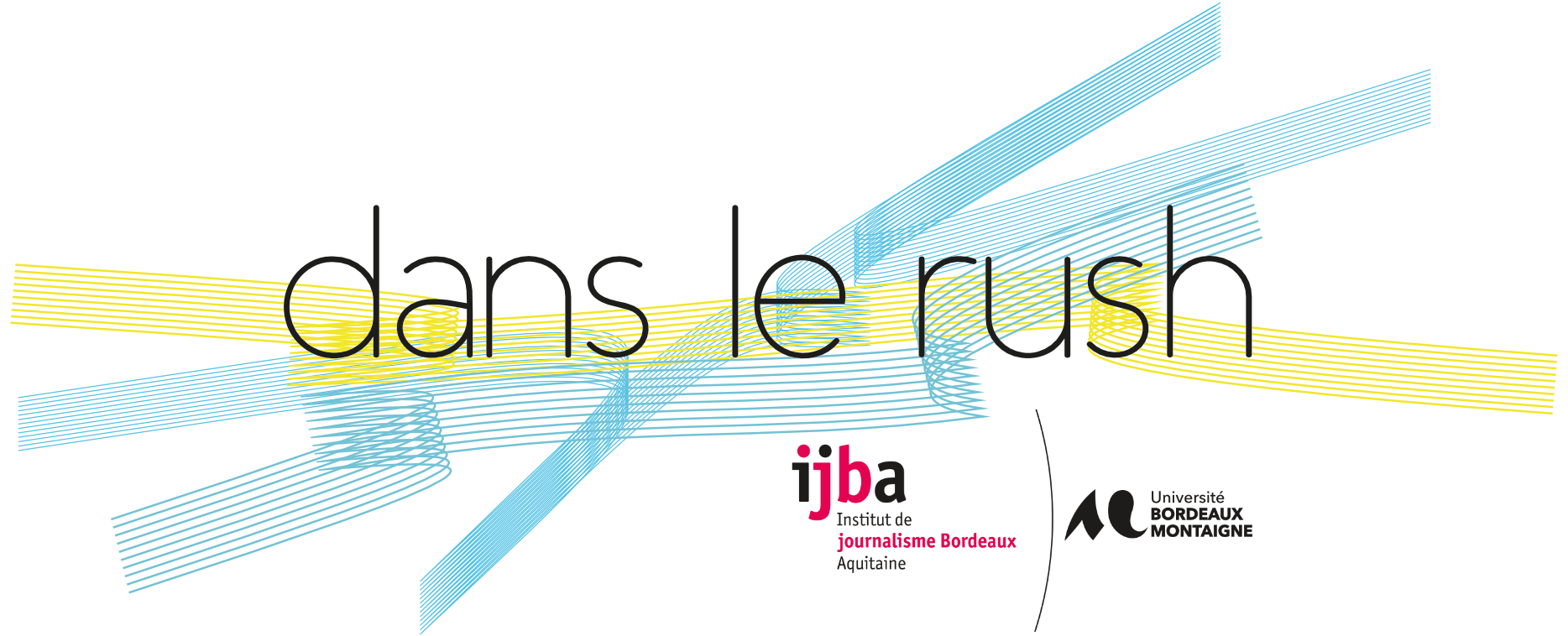The French government vaccination campaign arouse strong criticism in the country. Chaotic communication and a slow rollout explain this situation, as do factors deeply rooted in French history.
Scepticism and vaccination, a french story
The arrival of a new vaccine in France has given rise to social and political debate. The French mistrust of vaccines can be explained by the history of the country. Many misconceptions still exist today.

Beyond vaccination, Sandrine does not trust “conventional medicine”. “I consult a homeopath. I try to take as little medicine as possible. I prefer to be treated with natural solutions”.
Sandrine, a 51 year old estate agent, defines herself as sceptical regarding vaccines. Her mistrust is not new. When she was a child, she had to take care of her brother, who suffered from a mental illness. According to her, her brother’s disability is linked to the smallpox vaccine. Although no link has ever been proven scientifically, Sandrine remained doubtful. Like 58% of the French population*, she is not willing to be vaccinated against COVID-19.
Françoise Salvadori is a Professor in immunology at Burgundy University. According to her, there are several factors explaining the mistrust of vaccines in France.
First of all, there is the question of natural versus artificial. “The idea of vaccination can appear unnatural to some people. Our immune system could suffice to protect ourselves”. A belief shared and spread by alternative medicine.
In her book “Antivax – History of the resistance against vaccine from XVIIIe s to our days” (Antivax-Histoire de la résistance aux vaccins du XVIIIe siècle à nos jours), Françoise Salvadori writes some parents think that “some parents leave their children facing chickenpox as a natural vaccination. This technique could become dangerous when dealing with other diseases”.
The second factor is more political. According to the researcher, distrust of government is linked to mistrust regarding vaccines. “Despite being 70, I don’t know if I will get vaccinated. The sudden and brutal change of position about masks didn’t create a climate of trust”.
Françoise Salvadori explains that the phenomenon is recent. “In England, where smallpox vaccines became mandatory in 1853, demonstrations and anti-vaccination leagues were created. In France, in the early 1950s, the BCG became mandatory, against tuberculosis. The National Ligue for the vaccination Freedom (Ligue Nationale pour la liberté de la vaccination) was created. Yes making vaccination mandatory is perceived as putting pressure on the human person, as a violation of their personal life and individual freedom”.

Finally, several health scandals weakened the government’s position. Nevertheless, Françoise Salvadori puts things into perspective. “Vaccines pay for past health scandals. Nevertheless, not all sanitary scandals are linked to vaccins. For instance infected blood or Mediator’s”.
In an tribune published in the newspaper Le Parisien, 200 personalities from the world of culture urge the French to be vaccinated. The goal: to set an example for people who are still reluctant. A communication strategy followed by celebrity doctors, like Michel Cymes, star presenter on France Télévisions.The doctor was vaccinated in front of the television cameras.
*According to a survey Odoxa-Backbone consulting for franceinfo et Le Figaro, published january 3rd.
The slow campaign
Lagging behind its European neighbours, France has given a boost to its vaccine campaign a few days after it’s launch. The government is trying to defend its strategy, by prioritizing categories of the population for vaccination. Here is a look at how things are going in Bordeaux where three vaccination centers have just opened.
In Louis Pasteur’s country, the vaccination campaign is slower than in other European countries. As of January 7, 1 9500 doses of vaccines have been administered, according to the minister of Health, Olivier Véran. At the same time, more than 300 000 Germans have already been vaccinated. Elderly people in retirement homes have priority, as well as medical staff aged 50 and over. Criticized for its slowness, the French government decided to speed things up.

On January 6, the government announced the opening of 300 vaccination centers across France. “Gironde, our department, is a good example of our strategy” said Benoît Elleboode, the Nouvelle-Aquitaine Health Regional Agency’s director, at the opening of a press conference on Tuesday, January 6. In Bordeaux, the Pellegrin University Hospital opened three vaccination centers for nursing staff. “Who would have thought that we would have a vaccine one year after the first treatment of a patient infected by the virus in this hospital ?” asked the regional prefect Fabienne Buccio. “We can finally see the light at the end of the tunnel” she said.

A representative of the Regional Union of Health Professionals (Union Régionale des Professionnels de Santé or “URPS”) highlighted the occurrence of some kind of personal reluctance towards vaccination in the sector. “But I think this mistrust will decrease quickly”. How and why ? Dr. Verdun-Esquer, chief of the Occupational Medicine department (service de médecine du travail), governing the 140 000 workers of the hospital, has an answer: “I got vaccinated myself today, because I am convinced that we have to show an example. We need a huge and efficient public information about vaccination, even for our teams. My own secretary is very hesitant”. Some health professionals have the same reason for than hesitating as the rest of the population: “ It is a new vaccine, with a new technology… but we are organising meetings to talk about it and that reassures them. We need to take the time to explain”.
The President of the Region, Alain Rousset, wanted to set an example by getting vaccinated in front of journalists. During a press conference given on January 6 in the hospital, doctors and politicians all drove home the message at the launch of the vaccine campaign. Hospital doctors, city doctors, pharmacists: all want to participate in “the war effort”. All this from a perspective of “transparency”, in the words of the president of the region.

The Bordeaux regional pharmacovigilance center is responsible for the overall monitoring of adverse effects. Monitoring and surveillance are essential to analyze the potential adverse effects of the Pfizer-BioNtech vaccine, the first used in France. These two reference centers were set up by the National Agency for the Security of Medicine and Health Products (Agence nationale de sécurité des médicaments et des produits de santé or “ANSM”). Data at the national level are collected and fed into international databases. Vaccine side effects start 24 or 48 hours after the injection. For the moment in France, no serious adverse effects have been identified. This surveillance is all the more important given that the European Medicines Agency has now authorized the marketing of Moderna’s vaccine against Covid-19.
Richard Monteil, Thérèse Thibon, Rachidath Sarre-Koto and Victoria Berthet
